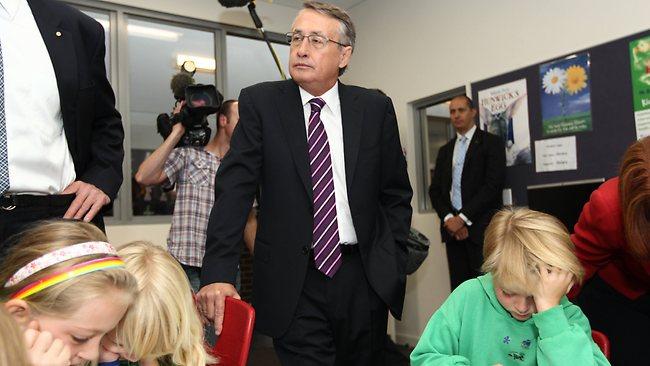Jobs outlook fuels wage fears
BUSINESS is becoming increasingly concerned about emerging wage pressures and higher inflation.

BUSINESS is becoming increasingly concerned about emerging wage pressures and higher inflation.
These fears come amid government predictions that unemployment will fall to 4.5 per cent and 500,000 jobs will be created by mid-2013.
While senior economists and business figures welcomed Wayne Swan's weekend declaration that the budget would forecast the creation of half a million jobs and further falls in unemployment, they warned this merely represented a small decrease in jobs growth and that the emerging skills shortages would not be filled by welfare-to-work measures alone.
They warned interest rate rises remained likely over the next six months and that the government would need to look to immigration to fill immediate skills shortages.
There was also a danger that wage settlements from the booming resources industry could spread to less profitable areas of the economy already being squeezed by a higher dollar.
Australian Chamber of Commerce and Industry economics director Greg Evans said Mr Swan's forecast was "reasonable" and represented a slight slowing in overall jobs growth. But the government needed to focus on how it intended to return the budget to surplus.
"More broadly in the economy, business is clearly concerned about emerging wage pressures and related inflationary consequences," Mr Evans said.
"The strongest bulwark against this occurring is to ensure any negotiated deals across industry are firmly based on productivity gains and they don't simply spread from more profitable sectors of the economy."
Australian Industry Group chief executive Heather Ridout said Mr Swan's figures were "extraordinary but were not remarkable given that the mid-year financial update predicted 2.5 per cent of employment growth".
Ms Ridout said filling 500,000 vacancies would be a challenge. She also repeated calls for immigration to be increased to the levels before the global financial crisis hit and for an emphasis on skills in the federal budget.
"There is no silver bullet for this issue," Ms Ridout said.
Grattan Institute program director Saul Eslake said Mr Swan's 500,000 jobs growth prediction over the next 27 months compared with 548,000 jobs created in the 21 months since June 2009 at the height of the global financial crisis.
He questioned whether the jobless rate would remain at 4.5 per cent, and said if it fell towards 4 per cent it would put upward pressure on wage inflation and interest rates.
To keep unemployment closer to 4.5 per cent the government would either need to increase the migration intake or persuade people who were not working to enter the workforce, Mr Eslake said.
Opposition Treasury spokesman Joe Hockey accused Mr Swan of "deception".
"He's actually saying it is a great thing; that we're doing a great job as a government to deliver you slower employment growth over the next two years than what you've had over the last 12 months.
"And we're doing it with an economy that will actually be stronger over the next two years than it has been in the last 12 months. It's bizarre thinking," Mr Hockey said.
But a spokesman for Mr Swan said it was "laughable" for an opposition Treasury spokesman to be "bagging the government for forecasting the creation of another half a million jobs".
"If we'd followed Mr Hockey's advice, Australia would have fallen into recession and 200,000 Australians would have joined the dole queue.
"Instead three-quarters of a million jobs have been created since we came to office, a time which included the GFC - an outstanding job creation record by any measure."
Australian Mineral and Mines Association spokeswoman Minna Knight said there would be 61,000 new jobs by 2015 created in the energy and resources sector, but a large percentage of these new roles would "be short-term jobs associated with the construction stages of new projects coming on line".
"The stark reality facing our nation is we simply do not possess enough workers who are prepared to relocate, re-skill and take up jobs in the resource sector," she said.


